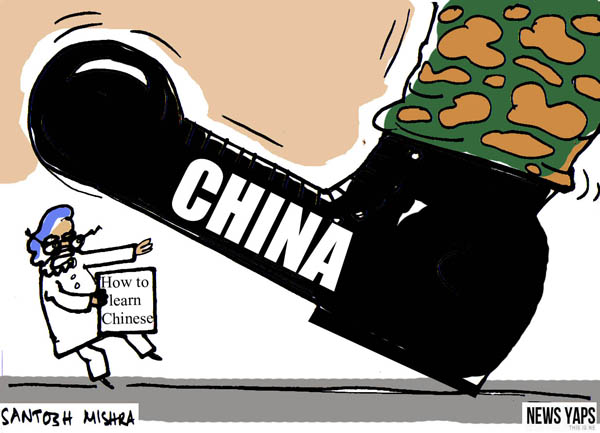NOVANEWS

By Alex GORKA | Strategic Culture Foundation
On Feb.23, the US Treasury Department announced the introduction of sanctions on 56 shipping vessels and entities accused of illicit trading with North Korea. The pressure intensification pursues the goal of compelling Pyongyang to give up its nuclear program. Today, almost all ships used for trade with that country are under the restrictive measures, including ship-to-ship transfers.
It’s timing that is important. The move is taken at a time the Winter Olympics are being hosted by South Korea. The event is used for easing tensions and launching dialogue between Seoul and Pyongyang.
Gradually, Washington is edging closer to the imposition of an economic blockade enforced by the US Navy. “If the sanctions don’t work, we’ll have to go Phase 2,” President Trump said, obviously meaning the use of force. “Phase 2 may be a very rough thing,” he warned.
Washington appears to be serious about its intent to go really far. In December, 2017, the US tried to insert a provision into the resolution on Pyongyang that would permit to hail and board North Korean ships in international waters. In January, Defense Secretary James Mattis said the US military had prepared a North Korea war plan. According to leading American experts on nuclear issues, Pyongyang may have as many as 20 nuclear warheads.
US Treasury Secretary Steven Mnuchin says his country will sanction anyone who does not comply with the restrictive measures it imposes. But only the UN-endorsed sanctions are mandatory. If Russia or China imposed sanctions against a country the US maintains trade ties with, would it agree to comply?
There is another aspect of the problem to be paid attention to. US lawmakers are not biding time. The legislation has already passed the House of Representatives. This is a very dangerous legislation that few people remember about. It not only the calls for being as tough as can be but also includes «inspection authorities» over the sea ports of Russia, China, Iran and Syria (Section 104). The legislation mentions the Russian ports of Vladivostok, Nakhodka and Vanino. It authorizes US Secretary of Homeland Security to search any vessel or aircraft that have used North Korean airports or seaports to make them subject to nothing less than “seizure and forfeiture”! The bill openly dictates that other countries must comply with US laws.
And the proposed surveillance of sovereign ports in the Russian Far East! If enforced, it would not only grossly violate international law but also constitute an act of war. But how could lawmakers approve it? Will US senators be wise enough to realize that Russia, China or Iran compliance with these provisions is as realistic as a dog observing a barking ban?
One more thing to emphasize. There had been no real bipartisan debate before the Act was voted by the House. It was handled under a “suspension of the rules” procedure, which is normally applied to noncontroversial bills. It helped to make it pass with only one “no” vote.
The UN Security Council has never delegated the authority to inspect other countries’ vessels or seaports to the US. The 1994 Memorandum of Understanding on Port State Control in the Asia-Pacific Region describes in detail the procedures in question. No country has special rights to get onboard of other countries’ ships.
An attempt to board a foreign ship would be a hostile act with unpredictable consequences. Russia and China will certainly counter such activities. But the US Navy will have to do it, once the legislation becomes law. The representatives who endorsed it were fully aware of what it might lead to but they did what they did. It reflects the mentality of those who are responsible for shaping US foreign policy as members of Congress.
And the new sanctions just announced by the administration, who are they aimed at? Probably, ordinary people instead of those who are responsible for the nuclear tests.
The problem is the reluctance of American politicians to perceive reality. The days when the US could do it alone are gone. Only an international effort can solve the North Korean problem. Unilateral actions are fraught with provoking conflicts not because other countries sympathize with or support North Korea but because they have no choice but stand up to the US challenge to remain sovereign nations. It’s time for the US to change mentality and stop behaving like a bull in a china shop.



